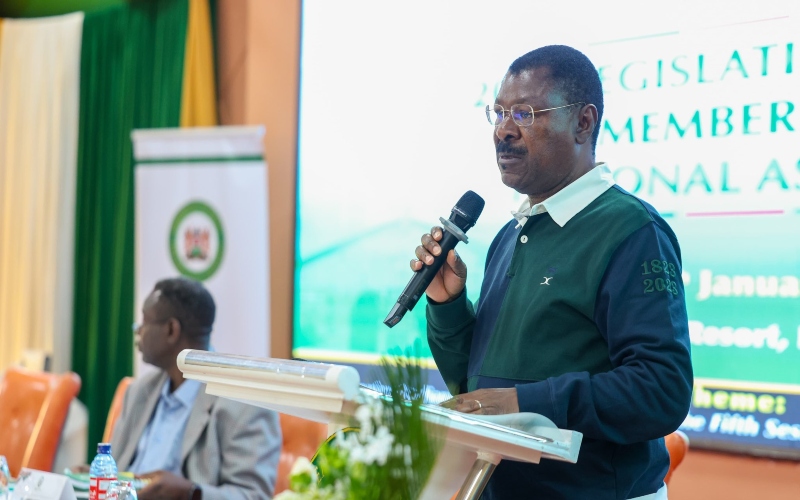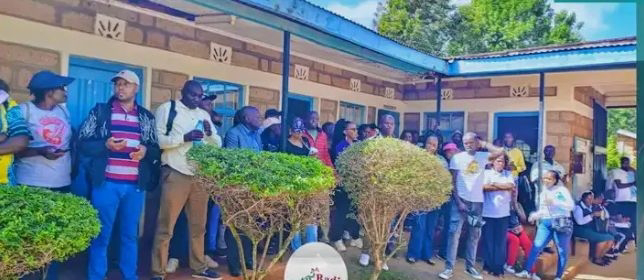Kenya’s education landscape is on the verge of a historic transformation as the Teachers Service Commission (TSC), in collaboration with the Ministry of Education and the World Bank, launches a professional development initiative targeting 38,849 P1 teachers nationwide.
Under the Kenya Primary Education Equity Program (KPEELP), this fully funded upgrading course marks a new chapter for long-serving primary school teachers who have laboured tirelessly to shape generations but lacked support and opportunities for career advancement. For many, it is a long-awaited breakthrough — a pathway to academic and professional renewal, equipping them with the skills needed to thrive under the Competency Based Curriculum (CBC).
This program restores the hopes for thousands of P1 teachers who have struggled to further their studies due to financial constraints and limited institutional backing.
“This program is a breath of hope for thousands of teachers who have waited patiently for a chance to grow,” said a senior Ministry of Education official. “It not only recognizes their service but redefines the trajectory of Kenya’s education system.”
According to the official, 38,849 teachers from across the country have been selected, reflecting the government’s commitment to equity and inclusivity in professional growth.
The western and Nyanza regions dominate the list, with Kakamega County leading at 4,169 teachers, followed closely by Bungoma with 2,208, Nakuru with 1,672, Homa Bay with 1,566, and Kisumu with 1,456.
Other counties with significant numbers include Murang’a with 1,410 teachers, Siaya with 1,390, Migori with 1,358, Meru with 1,259, Narok with 1,150, Machakos with 1,131, Nandi with 1,101, and Bomet with 1,061. Kericho, Kitui, and Kisii each follow closely with just over one thousand teachers — 1,029, 1,014, and 1,006 respectively — while Trans Nzoia contributes 1,005, and Busia 950.
ALSO READ:
Trans Nzoia Education CEC honoured by FIDA for championing women, children rights
In the central and Rift Valley regions, Kiambu records 879 teachers, Vihiga 863, Uasin Gishu 815, and West Pokot 776. Baringo has 699, Nyandarua 693, Kilifi 688, Elgeyo Marakwet 648, Nyamira 634, Kwale 578, and Nyeri 554. Slightly smaller numbers are seen in Tharaka Nithi with 535, Nairobi with 518, Kajiado with 506, and Embu with 481.
Among counties with moderate figures, Turkana has 369 teachers, Kirinyaga 358, Garissa 313, Taita Taveta 307, Laikipia 292, Mandera 248, Mombasa 216, Tana River 215, and Samburu 165. The counties with the fewest teachers selected are Isiolo with 153, Wajir 151, Marsabit 130, Lamu 86, and Makueni only 44.
This balanced distribution ensures that no region is left behind. For teachers in remote and marginalized areas, inclusion in this program signals long-awaited recognition and an opportunity to bridge historical inequalities in training and advancement.
“The upgrading initiative is not merely an academic exercise; it is a deliberate reform aimed at healing long-standing weaknesses in the education sector. For many teachers, the biggest barrier has been career stagnation.”
Despite years of service, opportunities for promotion were limited, leading to frustration and low morale. This program opens new progression pathways and rewards professional commitment.
It also bridges the knowledge gap between the traditional 8-4-4 curriculum and the new CBC system, enabling teachers to apply creative, learner-centered strategies that develop competence rather than rote memorization. Equally important is the program’s role in promoting fairness — ensuring that teachers in arid, rural, and marginalized counties can access the same high-quality training as their peers elsewhere.
Digital literacy will form a key pillar of the training, helping educators integrate technology into everyday teaching and assessment. Beyond technical skills, the program rejuvenates confidence, signalling that teaching remains a noble and upwardly mobile profession.
ALSO READ:
Meru MP calls on national gov’t to consolidate bursary funds to help needy students
“This reform touches the very soul of education — the teacher,” observed an education expert in Nairobi. “Once you empower the teacher, you transform the classroom and ultimately, the nation.”
The KPEELP program is structured as a blend of in-person sessions, online learning, and school-based practice — a model designed to modernize the teacher’s role and classroom environment.
At its heart is a strong focus on competency-based pedagogy, emphasizing active, participatory learning where students think, create, and collaborate. Teachers will refine lesson design, learn to integrate subjects effectively, and use locally available resources to make learning practical and meaningful.
The course also reorients educators toward assessment for learning, replacing exam-heavy approaches with continuous, formative assessments such as projects, portfolios, and observation. Equally important is ICT integration, equipping teachers with digital skills to enhance lesson delivery, communication, and learner engagement. Inclusive and special needs education will also feature prominently, ensuring that all learners — regardless of ability — receive fair and effective support.
Teachers will also undergo modules on environmental awareness, life skills, guidance, and counselling, strengthening their capacity to nurture emotionally and socially balanced learners. Training in professional ethics, mentorship, and leadership will help teachers embody integrity and model values that inspire students and colleagues alike.
ALSO READ:
KUPPET Bomet chairmanship aspirant calls for transparent polls as elections draw near
Finally, educators will engage in action research and reflective practice, learning how to analyze classroom challenges, gather evidence, and apply innovative solutions that improve teaching outcomes.
“We’re not just upgrading papers; we’re upgrading mindsets, skills, and the entire classroom experience,” explained a TSC official.
The ripple effects of this initiative will be profound. Renewed opportunities for professional growth will boost morale and retain talent. Teachers equipped with updated skills will implement CBC effectively, producing learners prepared for life, work, and global citizenship.
The program harmonizes standards across regions, narrowing disparities between urban and rural schools. By emphasizing lifelong learning, it restores pride and strengthens the profession’s standing. Aligned with Kenya’s Vision 2030 and the UN Sustainable Development Goal 4, this initiative not only upgrades skills but builds a generation of innovative, globally aware learners.
“This is not just an upgrading exercise; it is a renewal of purpose,” said a TSC regional director. “When teachers rise, the whole nation learns.”
With empowered teachers at its heart, Kenya’s education system is entering an era of excellence, equity, and transformation — one where no teacher is left behind, and every learner has the chance to thrive.
By Hillary Muhalya
You can also follow our social media pages on Twitter: Education News KE and Facebook: Education News Newspaper for timely updates.
>>> Click here to stay up-to-date with trending regional stories
>>> Click here to read more informed opinions on the country’s education landscape






